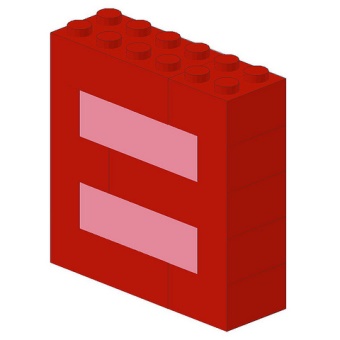COMPELLING TRUTH
Proposition 8
Part 1: The New Standard of No Standards
By Robin Schumacher

Summing up the rationale behind 2-1 decision against Proposition 8 in California, the judges wrote that Proposition 8, "served no purpose, and had no effect, other than to lessen the status and human dignity of gays and lesbians in California, and to officially reclassify their relationship and families as inferior to those of opposite-sex couples."
Thus, the judges said that Proposition 8 was discriminatory and argued that homosexual marriage is not inferior to heterosexual marital unions, but is every bit as "good and right" as traditional marriage.
Question: who says so? Who has the ability to make the call and validate that homosexual and traditional marriage are on the same playing field? The judges? No. While the homosexual movement has had to rely on activist judges for the most part to push their agenda forward, we'll see when we look at the ruling that the judges aren't actually offering up any opinion on marriage at all.
So who says homosexual marriage is morally equal to traditional marriage?
Please understand: I'm not being flippant, condescending, or argumentative when I ask "says who?" Instead, this is a critically honest and important question that this issue, and in fact all moral issues, need to have answered.
In Search of a Standard and Authority
Cheryl Jacques, the first openly lesbian member of the Massachusetts state senate and one-time president of the Human Rights Campaign (a group championing homosexual marriage), was once asked why polygamy was wrong. Her response was, "Because I don't approve of that."
Is that how it works? Is that how the question of what marriages and in and which are out?
Let's look at the various marital and sexual options open to human beings (my apologies if the below list offends anyone):
1. Man + Woman (married/unmarried)Now, Ms. Jacques and many others give thumbs up to options 1-3, but they frown upon and want options 4-7 disallowed.
2. Man + Man (married/unmarried)
3. Woman + Woman (married/unmarried)
4. Multiple partners/spouses (married/unmarried)
5. Any of the above within same family
6. Man or woman + child
7. Man or woman + animal
Why? Why "discriminate" against polygamists, man/boy-love relationships or really any "committed" and "consensual" relationship?
For example, Ms. Jacques and others may not approve of polygamy but the people making up the reality show "Sister Wives" strongly disagree. On February 5th, a judge in Utah seemed to side with them and has allowed a suit that Kody Brown and his four wives have filed that challenges Utah's polygamy law to proceed.
"There's a host of constitutional problems when a state goes into a family and says your family has to look like ours. [That] you have to live your life according to our values and our morals," Brown's attorney said. He continued to say, "The question is, in this country, is whether you can have a family that's different."
The rhetoric used by Brown's attorney should hit home with Cheryl Jacques and all homosexual marriage supporters as it's the exact same language they've used in their arguments. Yet Ms. Jacques and many others draw a line in the sand at polygamy and other sexual/marital combinations, and when challenged as to their ethical reasoning, the best they can muster up is "Because I don't approve of that."
As strange as it may sound at first, in all actuality, their own individual preference is indeed the only true thing that Ms. Jacques and others like her can appeal to.
The Judge's Standard
The judges in the Proposition 8 case believed the standard that settles the case is the equal protection clause of the Constitution, which says: "All persons born or naturalized in the United States, and subject to the jurisdiction thereof, are citizens of the United States and of the State wherein they reside. No State shall make or enforce any law which shall abridge the privileges or immunities of citizens of the United States; nor shall any State deprive any person of life, liberty, or property, without due process of law; nor deny to any person within its jurisdiction the equal protection of the laws."
Thus, the judges reference no actual standard for marriage, but appeal more broadly to the 14th amendment, which does not address the institution of marriage specifically at all. However, if that is the standard that will be used, Cheryl Jacques and anyone opposing polygamy must bow to the arguments of Kody Brown and his wives, and accept polygamy as equal to two-person marriage; it cannot be classified as "inferior" in any way.
Nor can any of the other possible sexual/marital options. If "liberty" in the 14th amendment encompasses all desired sexual practices, any argument put forward against any practice or wished-for ‘marriage' must be cast aside due the standard used by the Proposition 8 judges.
Is there anyone comfortable with that?
Next: Part 2: Who is the Moral Authority?
Proposition 8 The Series
Part 1: The New Standard of No Standards
Part 2: Who is the Moral Authority?
Image Credit: Bill Ward; "red-and-pink-equality"; Creative Commons
comments powered by Disqus
Published 11-22-12

